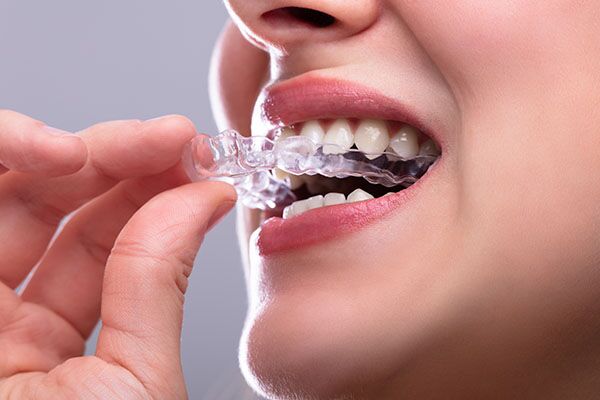If you’ve ever asked yourself, “Which type of night guard splint is best for me?”, you’re not alone. Selecting the right night guard splint is crucial for addressing conditions like bruxism, teeth grinding, jaw clenching, or TMJ-related pain. With so many types available—ranging from soft to hard, dual-laminate to custom-fit—the process can feel overwhelming. Your comfort, condition severity, and sleep habits all play a role in determining which Night Guard Splint in Dubai oral appliance will serve you best. Understanding the variations helps you make a smart, health-conscious choice that improves both your dental well-being and your overall sleep quality.
Why choosing the right night guard splint really matters?
When people search for “best night guard for clenching” or “hard vs. soft night guard,” they're seeking comfort and long-term relief. The right night guard splint does more than prevent enamel wear—it aligns your jaw, relieves tension, and may even reduce headaches and neck pain. The key lies in choosing a device designed for your unique needs. The primary types of night guards include:
- Soft Night Guards: Made from flexible materials like EVA or thermoplastic, ideal for light grinders and first-time users
- Hard Night Guards: Constructed from durable acrylic, best for moderate to severe bruxism and jaw joint stabilization
- Dual-Laminate Night Guards: Combine soft inner layers with a hard exterior, offering a balance of comfort and strength
- Custom-Fit Night Guards: Molded to your exact bite and jaw, offering optimal alignment and protection
If you wake up with tight jaws, tooth sensitivity, or unexplained tension headaches, choosing the right dental night splint can significantly improve your quality of life.
What are the risks of wearing the wrong night guard?
People often ask, “Can the wrong night guard make things worse?” Unfortunately, yes. Wearing an ill-fitting or incorrect type of night guard splint can result in more harm than good. For example, a soft guard might be too weak for severe grinders, causing uneven wear or inadequate protection. On the other hand, a hard guard might feel bulky or increase tension for light grinders. The risks may include:
- Worsened jaw pain due to poor bite alignment
- Increased tooth sensitivity or enamel wear if not protective enough
- Disrupted sleep from discomfort or improper fit
- Gum irritation or pressure spots if the material doesn’t suit your mouth
Choosing based on habit rather than diagnosis is a common mistake. The safest and most effective solution depends on your grinding severity, jaw tension, and sleeping posture. An informed decision can prevent long-term complications and promote proper jaw positioning and muscle relaxation.
Benefits of selecting the best night guard for your needs:
The difference between simply wearing a guard and wearing the best night guard splint for your specific needs is transformative. Users often ask, “Will the right night guard really improve my sleep?” Absolutely. A properly chosen splint for bruxism or TMJ pain aligns your bite, eases pressure, and allows your jaw muscles to relax overnight. Some of the most impactful benefits include:
- Protection against enamel erosion and tooth fractures
- Relief from jaw tension, tightness, and facial fatigue
- Improved sleep quality by reducing unconscious clenching
- Prevention of headaches, neck pain, and ear pressure
- Stabilization of the temporomandibular joint (TMJ) for long-term jaw health
For example, those who experience daytime jaw soreness or Night Guard Splint clicking sounds benefit greatly from a custom-fit or dual-laminate guard designed for heavy bruxers.
Frequently asked questions about types of night guard splints:
What’s the difference between soft and hard night guards?
Soft guards are made from pliable material, comfortable but less durable. Hard guards, made from acrylic, are rigid and designed for intense grinding or TMJ disorder.
Are dual-laminate guards better than single-material ones?
They offer the comfort of soft guards with the durability of hard guards, making them a good middle ground for many users.
How do I know if my guard fits correctly?
It should feel snug but not tight, shouldn’t cause pain, and must not pop out during sleep. Custom-fit guards provide the highest accuracy.
Can I switch types if my current one isn’t working?
Yes. Many people upgrade from soft to hard or dual-laminate types as their condition evolves or their guard wears out.
Is a custom night guard always better than OTC?
Custom night guard splints are often superior because they match your exact bite, jaw size, and grinding intensity, offering greater protection and comfort.
Conclusion:
So, which type of night guard splint is best for me? The answer depends entirely on your symptoms, comfort preferences, and the intensity of your teeth grinding or jaw clenching. Whether you need a soft bite guard for mild bruxism, a hard acrylic splint for jaw support, or a dual-laminate guard for comfort and durability, choosing the right material and style can make a life-changing difference. The right night guard splint enhances your sleep, protects your smile, and minimizes future dental damage. Take your time, understand your condition, and select a solution that fits both your mouth and your lifestyle for lasting oral health and peace of mind.

